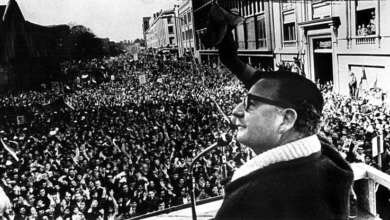Peru’s presidential election heads into a second round runoff after Keiko Fujimori failed to receive the majority percentage for an outright win.
The second-place spot for the runoff might not be settled for days as votes from abroad were tallied. 3.8 percent of the electorate is made up of 880,000 Peruvians living abroad that were registered to vote.
The second-place spot is likely to be filled by Pedro Kuczynski, who has a small lead over leftist candidate Veronika Mendoza. The winner will challenge Keiko Fujimori for the presidency in the June runoff election.
Fujimori is one of two main pro-capitalist candidates in the election, the other being Kuczynski, a former Washington insider who has held positions at both the IMF and the World Bank. Fujimori also happens to be the daughter of former dictator Alberto Fujimori, who is currently in prison for human rights abuses including the murder and kidnapping of citizens and journalists.
Under the presidency of Alberto Fujimori neo-liberalism was king. Public companies, such as energy, oil, electricity, large-scale mining, fishing, telecommunications, etc. were auctioned off to private foreign corporations. The Fujimori regime also violently repressed trade unions and social protests; every strike or mobilization was accused terrorism and there was widespread imprisonment and assassination of leaders.
Fujimori has tried to downplay the role her father took in the murder and kidnapping of citizens, and has denied the fact that hundreds of thousands of Quechua speaking indigenous women were forcefully sterilized by her father’s regime. Hundreds of women marched in the streets on International Women’s Day denouncing candidate Fujimori and demanding justice for the thousands of women who were forcefully sterilized.
Both candidates Kuczynski and Fujimori have also been implicated in the Panama Papers scandal that revealed countless world leaders and government officials who have hid assets and dodged taxes in offshore accounts in Panama.
Fujimori and Kuczynski are both poised to continue the status quo of free market capitalism if they are elected, and have demonstrated in the past that they are willing to follow the path of U.S. demands.
Veronika Mendoza is seen as a symbol of hope for the Peruvian working class, echoing the goals of economic independence that have been made by the independent left governments of Latin America.
Mendoza was first seen as being unlikely to be a contender in the elections, but she very quickly rode the tide of popular enthusiasm.
The left in Peru, like many other nations in the region, has been brutally repressed in the past and has suffered many setbacks. The rise of Mendoza as a competitive candidate, even if she does not make it to the second round, is a boost to leftist politics across the region.
The people of Latin America are well aware of the consequences of capitalism and the attacks on left and progressive forces in the region.
Mendoza’s presence in the elections gives hope to those in the Latin American left that hope to see more victories, as setbacks have been felt in recent years.
Whether Mendoza ultimately wins or loses against Kuczynski her candidacy represents a shift in the national attitude of the Peruvian people.
As the Peruvian Communist Party said in a public statement “She synthesizes the hope for a people who were almost numbed by so many deceptions, numbed by so many lies, by so many betrayals, a people who had already ceased to believe in politics and politicians.”
Indeed, the fact that a previously little known and very young leftist politician could reach the heights of Peruvian politics is testament to the steadfastness of a people looking for an alternative to the free-market status quo.





